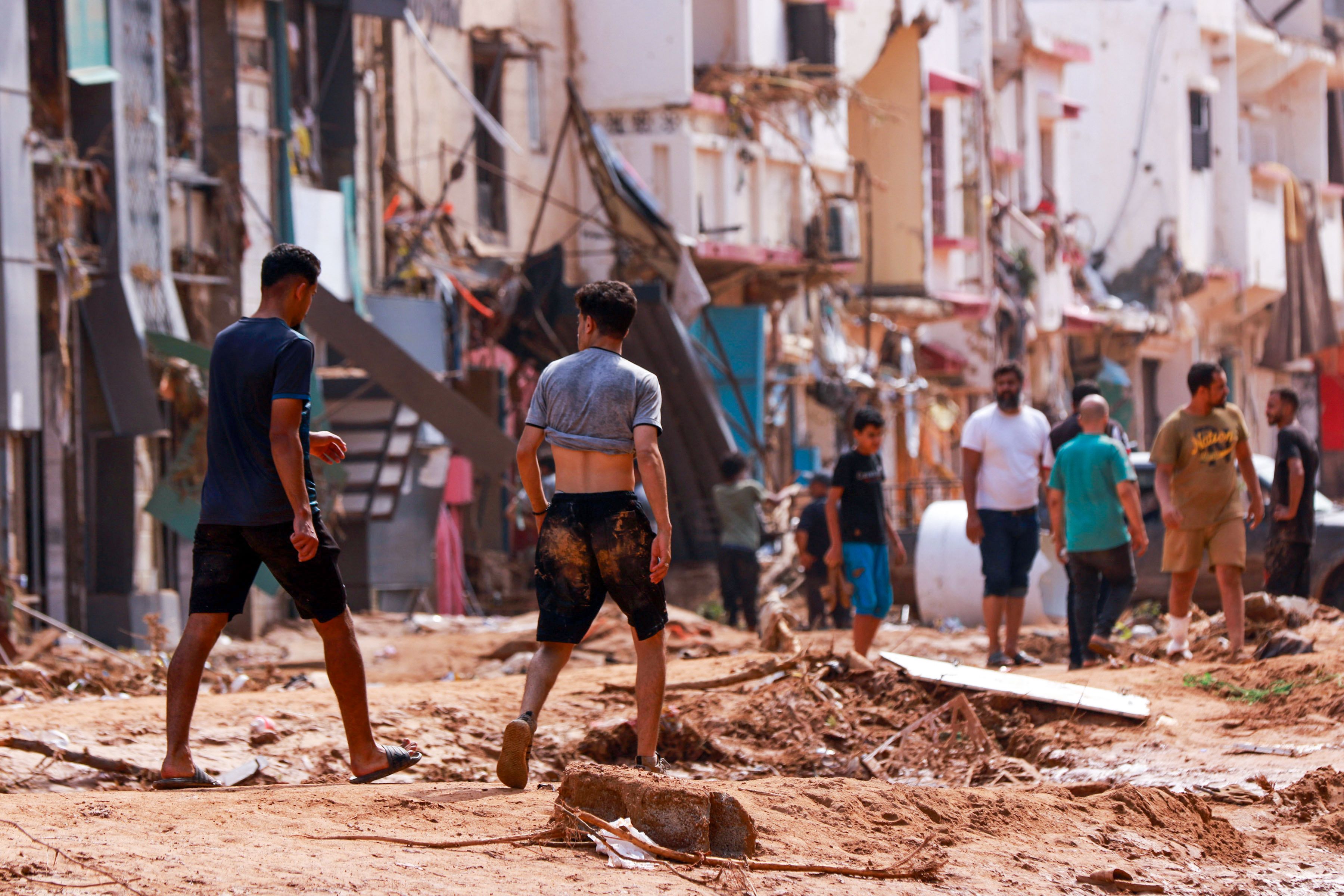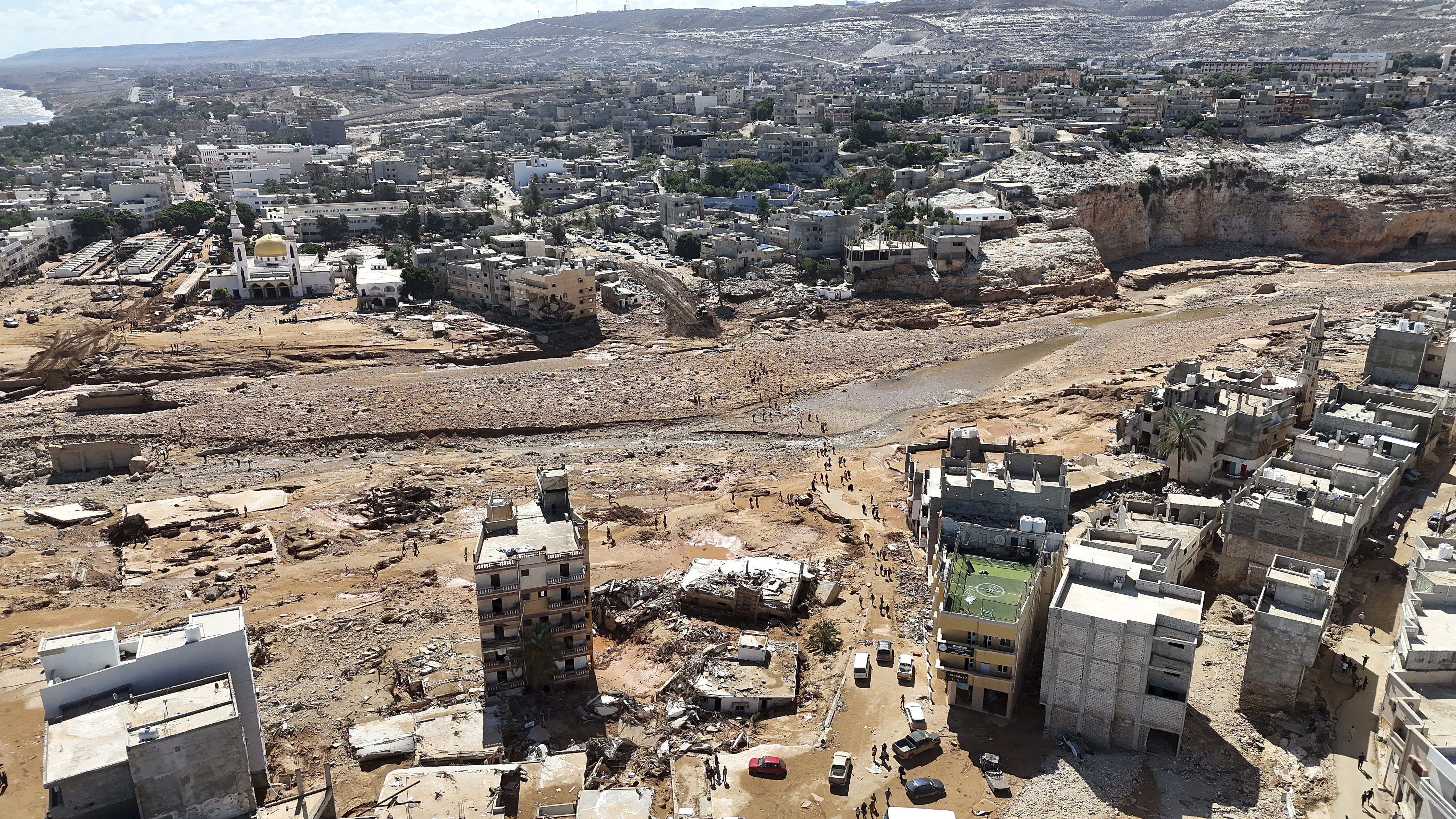International aid groups have mobilized in Libya, where thousands are reported dead and thousands more still missing after weekend flooding.
Mediterranean storm Daniel caused deadly flooding Sunday in many towns of eastern Libya, but the worst-hit was the Mediterranean city of Derna. Two dams in the mountains above the city collapsed, sending floodwaters roaring down the Wadi Derna river and through the city center, sweeping away entire city blocks.
Derna has struggled to get help after Sunday night’s deluge washed away most access roads. Aid workers who managed to reach the city described devastation in its center, with thousands still missing and tens of thousands left homeless.
“Bodies are everywhere, inside houses, in the streets, at sea. Wherever you go, you find dead men, women, and children,” Emad al-Falah, an aid worker from Benghazi, said over the phone from Derna. “Entire families were lost.”
Get Tri-state area news delivered to your inbox.> Sign up for NBC New York's News Headlines newsletter.
“We are just seeing the scale and severity of disasters from natural hazards increasing and that is putting a drain on resources — both financial and human resources — and also, I'll be honest, empathy,” said Patricia McIlreavy, CEO of the Center for Disaster Philanthropy.
Recovery from the devastation could take years, McIlreavy said, and encouraged people to consider longer-term, unrestricted giving rather than rushing to give immediately when conditions are still rapidly changing.
Read more
Michael Thatcher, president and CEO of Charity Navigator, which evaluates and rates nonprofits, said getting aid into Libya may be challenging due to ongoing sanctions the U.S. has placed against the country. Generally, those sanctions are waived following a natural disaster, as they were for Syria earlier this year following a deadly earthquake there.
Thatcher said larger international nonprofits, like The International Federation of Red Cross and Red Crescent Societies (IFRC), will have an easier time navigating sanctions than a smaller U.S. nonprofit with no previous interaction with the Libyan governments.
Many worry the fact that the country has two governments supported by different countries may slow rescue and recovery efforts.
“Getting $100 into Libya is hard,” Thatcher said. “Getting $100 to Doctors Without Borders or World Vision or another one of those large, well-established charities to use in Libya is much easier because they already have third parties that are working with them there.”
Charity Navigator has assembled a list of nonprofits that work in Libya, Thatcher said.
Here are some other groups that have responded and are looking for additional support:
The International Federation of Red Cross and Red Crescent Societies (IFRC): The IFRC announced an emergency appeal for 10 million Swiss Francs to scale up the Libyan Red Crescent's relief efforts in response to the floods caused by Storm Daniel in north-eastern Libya, the organization said on its website. To help contribute to fund the emergency appeal and support the people of Libya in their time of dire need, go to the IFRC donation page here.
Islamic Relief: Islamic Relief has already pledged 100,000 British pounds ($125,000) for Libya relief efforts and has launched the Libya Floods Emergency Appeal to raise more funds to give local humanitarian organizations to use for affected communities. You can donate to that fund here.
Doctors Without Borders/Médecins Sans Frontières (MSF): Doctors Without Borders does not currently work in the areas of Libya affected by the floods. However, an MSF emergency team is set to arrive in Derna on Sept. 14 to assess the medical needs and donate emergency medical kits to care for the wounded and body bags to the Libyan Red Crescent. You can donate to Doctors Without Borders here.
GlobalGiving: Your donation to GlobalGiving's Libya Flood Relief Fund will provide emergency relief and long-term support to affected communities, especially in the eastern city of Derna. Find more information and links to donate here.



